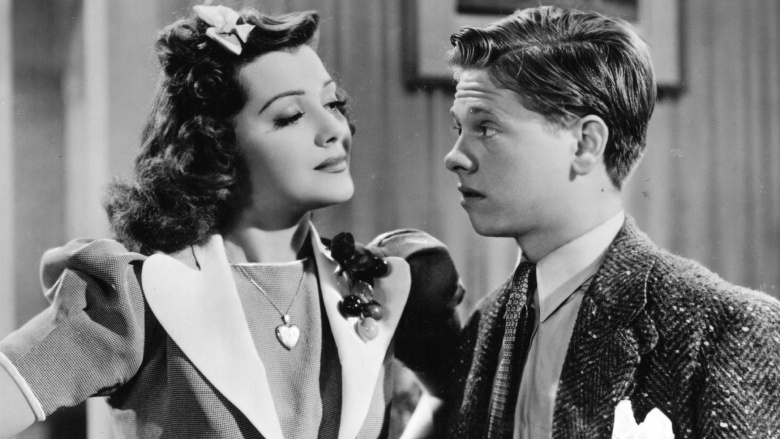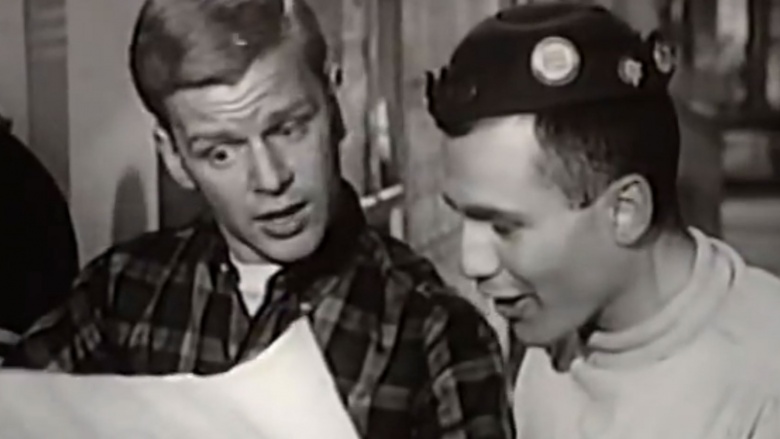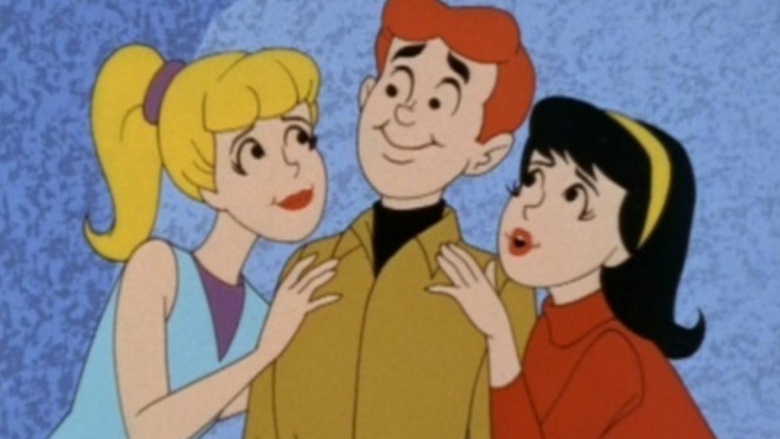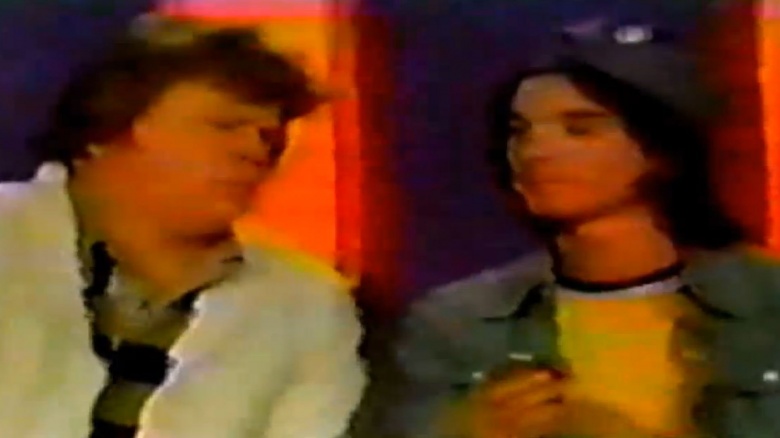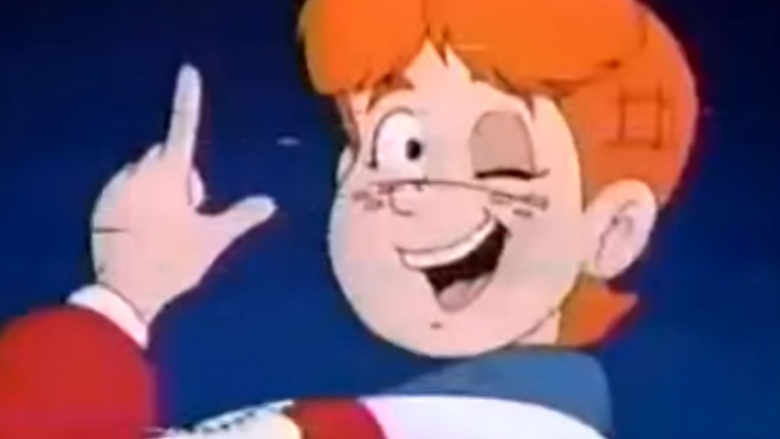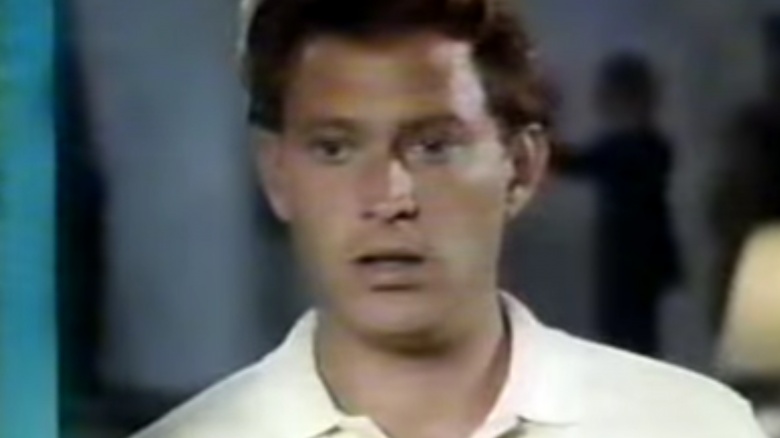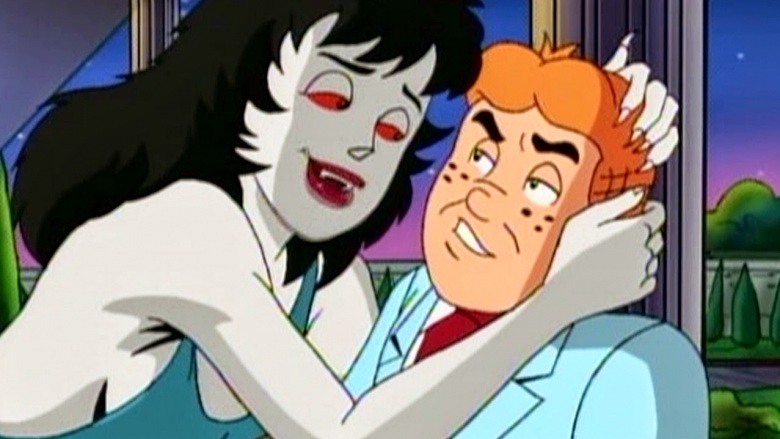Awful Adaptations: Archie Comics
When The CW recently announced the details of its upcoming adaptation of the beloved Archie Comics gang, Riverdale, fans were aghast. Descriptions of Jughead as an "emo heartthrob," Betty with an "affinity for Adderall," and Archie as a "pumped" jock set off alarm bells warning of a potential train wreck.
Which is absolutely nothing new where Archie is concerned. Because Riverdale isn't the first time they've tried to adapt Archie—and it isn't even close to being the weirdest or the worst attempt. So strap in, because here's a look at how good ol' Archie Andrews somehow ended up with 75 years worth of mullets, ghosts, and depressed divorcees.
America's Favorite Teenager: Andy Hardy Archie Andrews
You'd think that Archie would have been a perfect character to be adapted for the big screen back in his 1940's heyday, but there was just one problem: Archie Andrews the comic book character was a complete and utter rip-off of Mickey Rooney's wildly popular movie character Andy Hardy, who headlined 16 films between 1937 and 1958. Whoops!
Rather than risk potential legal trouble by rubbing everyone's face in it, the folks at Archie Comics decided to get sneaky, hiding the character on the radio rather than in the movie houses, where the comparisons with Andy Hardy would be a little less obvious. The resulting program, Archie Andrews, ran for a decade before going off the air in 1953, listeners apparently none the wiser.
Dobie Gillis Archie Andrews
The Many Loves of Dobie Gillis was a hit sitcom in the early 1960s, following the life of Dobie—a high school boy torn between multiple girls—and his offbeat best friend, Maynard G. Krebs. If that sounds an awful lot like Archie and Jughead, well, Archie Comics apparently thought so too, which explains why the company tried to turn Archie into a sitcom in 1964.
In a case of "turnabout is fair play," the unaired Archie pilot liberally borrowed from the elements that made Dobie Gillis into a successful show, including morphing Jughead into a dopey clone of Maynard. The network execs didn't buy it, though, possibly because by the time the pilot was produced, Dobie Gillis had already been cancelled. Whoops again!
Archie Andrews: International Pop Music Superstar?
While the first attempt to get Archie onto the small screen was a non-starter, the same can't be said for the second, which turned Archie and the gang into household names across the globe. Hitting the air in September of 1968, The Archie Show was an animated series that swiped from an all-new source: the hit musical comedy series The Monkees.
And just like The Monkees, Archie's new fake band, The Archies, went on to become international pop stars when their 1969 song "Sugar, Sugar" became a number one hit in nine countries, including the United Kingdom and the United States. Hoping lightning might strike twice, CBS asked Archie Comics if it could come up with other fake cartoon bands. The result was the creation of Josie and the Pussycats in 1970, proving that sometimes good things can come from bad music.
The Archie Situation Comedy Musical Variety Show, AKA The Archie Dumpster Fire
If at first you don't succeed, come up with an even worse idea, and fail harder. That seems to be the Archie motto when it comes to live action adaptations, because if there's one thing worse than the 1964 unaired pilot, it's this abysmal genre mish-mash from 1978.
A mix of music, stand-up jokes, skits, and sheer crap, The Archie Situation Comedy Musical Variety Show answers the age old question: what if you mixed The Carol Burnett Show with Welcome Back Kotter and then removed everything good about either of them? Unbelievably, this pilot actually aired on national television. The only one to make it out with their dignity intact? Future WKRP star Gordon Jump, who played Archie's dad.
Mullets For Everyone!
Given the success of the Archie cartoon line in the 1970s, it makes sense that the networks would try and update the formula for the 1980s as well. What makes less sense: mullets.
Re-imagining the Archie gang as precious pre-teens instead of horny high schoolers, The New Archies slapped a sick mullet on Archie and randomly put everyone on skateboards in a desperate attempt to appear hip and relevant. The resulting mess managed to last exactly three months on NBC before becoming the subject of a much warranted mercy killing.
Divorces For Everyone!
More than 25 years after its first attempt, Archie Comics decided third time was the charm for a live-action adaptation. What was the brilliant idea behind 1990's Archie: To Riverdale and Back Again? Show that even the happiest group of kids in the world will eventually turn out to be miserably depressed, washed-up failures as adults.
Just how morose was it? A good portion of the made-for-TV movie, which aired on NBC, focused on balding loser Jughead trying to make up with his angry son after a bitter divorce. Turns out there are some things even a hamburger can't actually fix.
Scooby Doo's Archie's Weird Mysteries
The scariest part about this 1999 animated series isn't the fact that it's essentially swiping the core concept of Scooby Doo and just swapping out the Mystery Machine gang for The Archies. No, it's the fact that despite this, Archie's Weird Mysteries is still probably the best adaptation that's ever been done yet.
In fact, it's no stretch to think that the show's sly subversions of the usual Archie clichés is a major influence on the CW's upcoming Riverdale adaptation. After all, Riverdale has been described as Archie meets Twin Peaks. And if it can deliver on that...well, it couldn't possibly be any worse than what's come before it.

